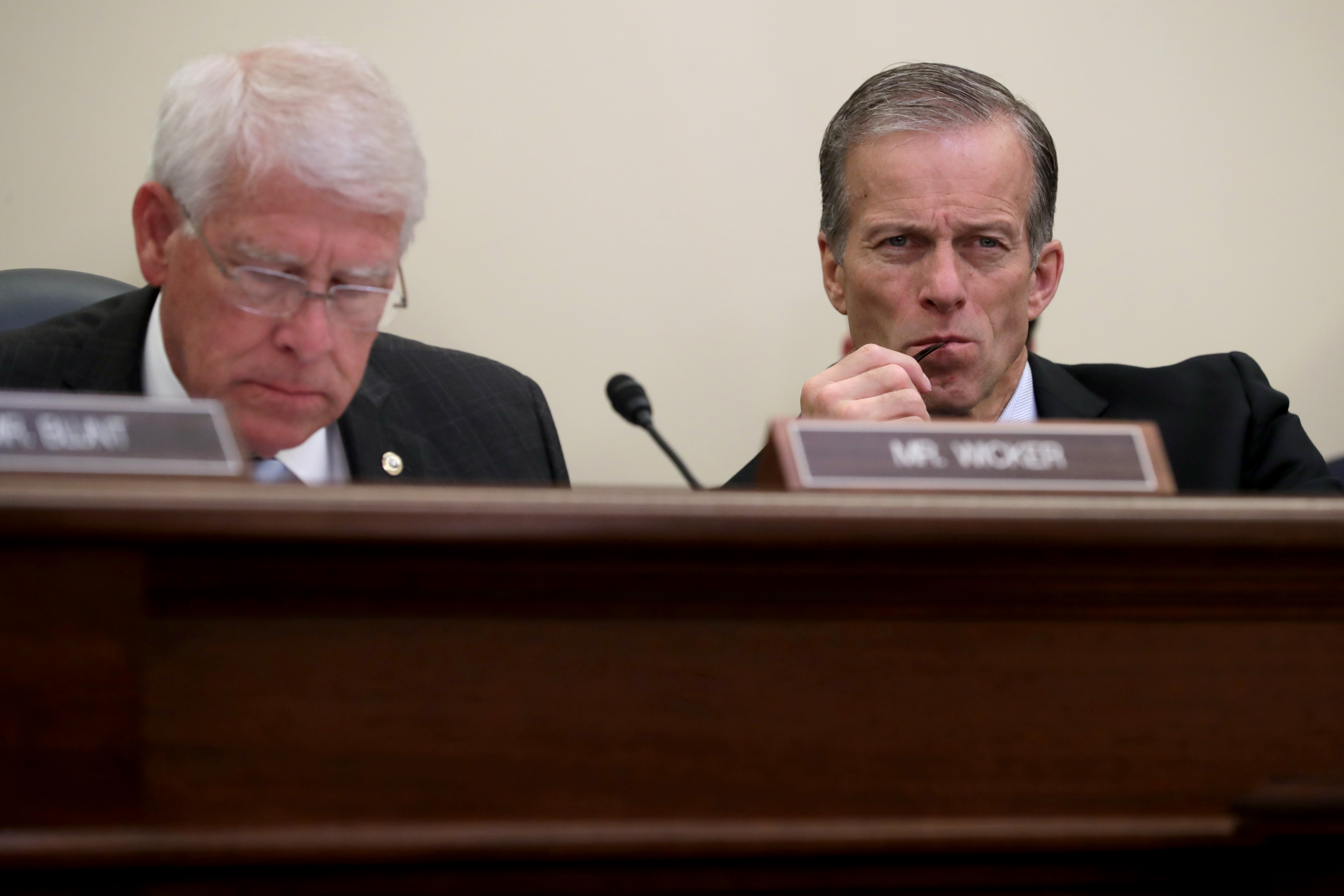5G Race Could Boost Private C-Band Deals
The smarter way to stay on top of the multichannel video marketplace. Sign up below.
You are now subscribed
Your newsletter sign-up was successful
WASHINGTON — FCC chairman Ajit Pai has said his agency is still vetting various proposals for freeing up C-band spectrum, amid signals that it could be leaning toward a marketplace sale rather than an commission-conducted auction.

That would be good news for the C-Band Alliance, a group of international satellite carriers with those spectrum licenses looking to cash in on sales through deals with carriers. It could also be a payday for cable operators and broadcasters.
Democrats on Capitol Hill have been pushing back publicly on marketplace deals, so the issue was very much in the spotlight and remains complicated.
The Federal Communications Commission voted unanimously in July 2018 to find ways to open up the C-band spectrum (3.7 to 4.2 Gigahertz) — either all of the proposed 500 Megahertz or some portion of it — for terrestrial wireless use. Those ways could include an incentive or capacity auction, a market mechanism in which incumbents voluntarily strike deals to reduce their footprint, or some other means.
“The FCC is still considering the merits of various proposals and making sure that whatever it does is legally supportable,” one cable lobbyist following the proceedings said.
Repack Proceeds Possible
One of those proposals includes cutting cable and broadcast in on the proceeds from a C-band repack. That’s something ACA Connects, the trade group for smaller, independent MSOs, has said should happen as long as whatever the FCC decides protects incumbents from interference from wireless carriers getting the spectrum.
The smarter way to stay on top of the multichannel video marketplace. Sign up below.
The FCC has asked stakeholders to comment on what authority they think the regulator has to compensate satellite operators that use the spectrum to deliver network programming to cable operators and TV stations, as well as its authority to compensate incumbent MSOs and broadcasters that might have to find other spectrum or use another delivery system, depending on how much spectrum it winds up reclaiming in the band.
Pai told Congress following the request for the targeted input on a “certain course of action” that the last thing the FCC wanted to do was something it thought was “in the best interests of the American people but [would] then be stuck in the courts for a long time.”
That the FCC was delving deeper into the compensation issue was good news for the alliance. So was a letter to the chairman from two top Senate Republicans who together chair the committee and subcommittee with primary jurisdiction over the FCC.
In that letter, Sens. Roger Wicker (R-Miss.) and John Thune (R-S.D.) signaled speed is of the essence, given that the C-band (3.7-4.2 GHz) is midband spectrum, ideal for 5G because of its propagation characteristics.
The senators did more than that. They said, in no uncertain terms, that getting that C-band spectrum to market ASAP could be the difference between winning and losing the race to 5G, a race that President Donald Trump has said the United States must win.
“Your action to speed up the availability of midband spectrum for 5G will play a crucial role in determining whether the American people will reap the full benefits of next-generation technology and whether the United States will win the massive economic benefits associated with leading the world in 5G,” Wicker and Thune wrote.
They did not tell the FCC to forgo an auction for marketplace deals, but they did urge the agency “to act quickly.”
Diane VanBeber, a vice president at C-Band Alliance member Intelsat, called the Thune-Wicker input “the right letter at the right time … We’ve got some solid footing here and we’re continuing to build our case.”
Pai has signaled that an FCC auction, though it would put money in the U.S. Treasury rather than in satellite operators’ pockets, might not be the fastest route to freeing up the spectrum.
Could Be Years Away
With another millimeter-wave auction scheduled for the end of the year and a Universal Service Fund auction to conduct, it could be a couple of years before a C-band auction could be completed. At a recent Senate Appropriations Committee budget hearing, and again in a House oversight hearing, Pai was pressed about the potential billions of dollars to the treasury that might be lost to a marketplace approach.
He said the FCC had to balance a number of factors, but it’s focused on the speed of freeing up that spectrum given that 5G leadership is a top U.S. priority, not only for competitiveness but for investment and innovation.
While Rep. Doris Matsui (D-Calif.) has signaled new legislation could help resolve the issue, Pai suggested that waiting for Congress could work against the need for speed.
Contributing editor John Eggerton has been an editor and/or writer on media regulation, legislation and policy for over four decades, including covering the FCC, FTC, Congress, the major media trade associations, and the federal courts. In addition to Multichannel News and Broadcasting + Cable, his work has appeared in Radio World, TV Technology, TV Fax, This Week in Consumer Electronics, Variety and the Encyclopedia Britannica.

